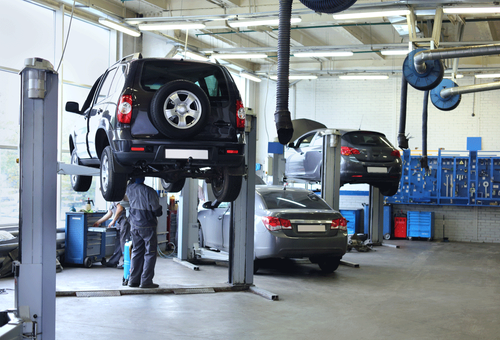Engine tuning is the adjustment or modification of the internal combustion engine or Engine Control Unit (ECU) to yield optimal performance and increase the engine's power output, economy, or durability. These goals may be mutually exclusive; an engine may be de-tuned with respect to output power in exchange for better economy or longer engine life due to lessened stress on engine components.

Basic vehicle maintenance is a fundamental part of a mechanic's work in modern industrialized countries, while in others they are only consulted when a vehicle is already showing signs of malfunction. Preventive maintenance is also a fundamental part of a mechanic's job, but this is not possible in the case of vehicles that are not regularly maintained by a mechanic. One misunderstood aspect of preventive maintenance is scheduled replacement of various parts, which occurs before failure to avoid far more expensive damage.

A motor vehicle service or tune-up is a series of maintenance procedures carried out at a set time interval or after the vehicle has traveled a certain distance. The service intervals are specified by the vehicle manufacturer in a service schedule and some modern cars display the due date for the next service electronically on the instrument panel. A tune-up should not be confused with engine tuning, which is the modifying of an engine to perform better than the original specification, rather than using maintenance to keep the engine running as it should.

Ford Vauxhall Volkswagen BMW Audi Toyota Nissan Mercedes
Peugeot Renault Honda Citroen Hyundai Land Rover Kia Mini
Skoda Fiat Volvo Mazda Seat Suzuki Jaguar Mitsubishi Lexus
Porsche Dacia Saab Chevrolet MG Smart Alfa Romeo Rover Jeep
Subaru Chrysler Lamborghini Austin Daihatsu Triumph Morris Bentley
Abarth Aston Martin Tesla Daewoo Lotus Ferrari Maserati

Copyright © 2022 by L J Woods VW Audi | All Rights Reserved